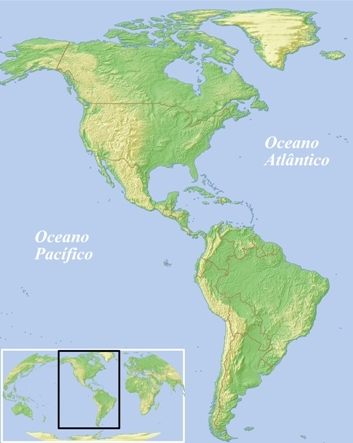O Petroleum it is today's most important source of energy, as it is through it that it is possible to carry out numerous activities. It is used mainly in the form of automotive fuels, such as gasoline and diesel oil, and is also burned in the operation of thermoelectric plants. In addition, it is an important raw material used in the manufacture of plastics, paints, synthetic rubbers and some other products.
It is an oily substance, highly flammable and black or dark brown in color, of fossil and non-renewable origin, that is, it may cease to exist over the years. Chemically speaking, it is a hydrocarbon, as it consists of hydrogen and carbon atoms.
This fuel is found in sedimentary basin zones, in layers far below the surface, usually in oceanic regions.To extract it, oil platforms are built that have the mission of drilling into the ground and finding this important substance below the seas.. The depth at which it is found varies greatly, in some cases it is located immediately below the ground, which facilitates its extraction, in other cases it is found at higher depths, such as oil Brazilian.

offshore oil platform
Despite its consumption having decreased over the last few years, oil is still considered the basic resource of contemporary industrial society. It is responsible for about 35% of the total energy consumption in the world, which guarantees it leadership in relation to other energy sources.
Due to its vital importance for the energy supply that guarantees the functioning of societies, oil is considered an extra strategic natural resource. This means that those who have it, in addition to a source of income, also acquire a certain domain of power, as many nations in the world will want to acquire this resource for internal supply.
Currently, the largest oil reserves in the world – around 60% – are found in the Middle East, a region located on the Asian continent, very close to Europe and North Africa. Because of this, numerous geopolitical disagreements have occurred and still occur in this region, most of them involving or with the participation of the United States of America (USA), which are very dependent on oil to develop.
The US is among the biggest oil producers, but it is also the one that consumes the most, so its domestic production is not able to handle all its consumption, which makes it intervene politically in other regions in order to achieve better commercial agreements to guarantee purchases at lower prices. high.
Brazil is also among the largest oil producers in the world, but its production still does not guarantee the level of exporter, since the domestic consumption of this element is also high. However, this could change in the coming years with the discoveries in the Pre-Salt region, off the coast of the country, which will guarantee us a good income from exports.
In any case, estimates point out that oil in the world should run out in the near future, in around 40 or 50 years, as long as current consumption patterns are maintained. For this reason, several countries – including Brazil – are investing in new technologies for the production of other fuels, preferably those that pollute less than oil.
By Rodolfo Alves Pena
Graduated in Geography



